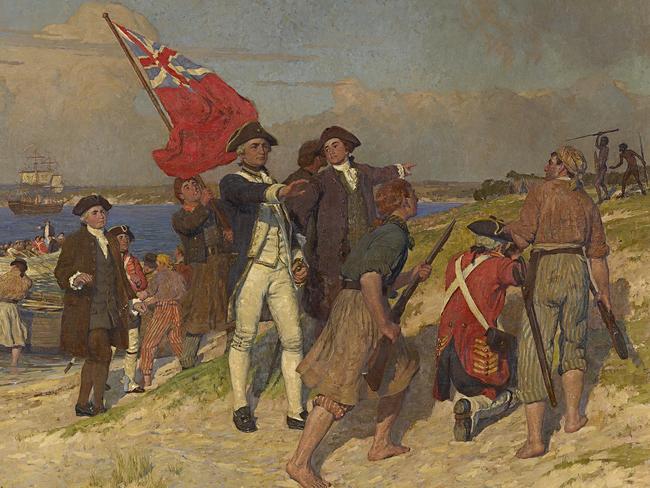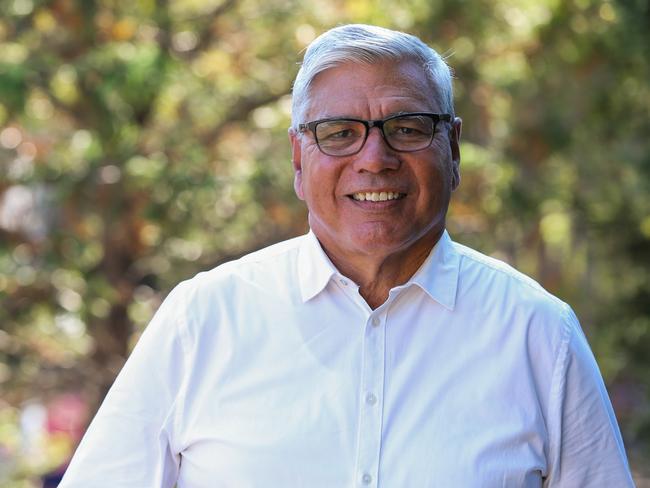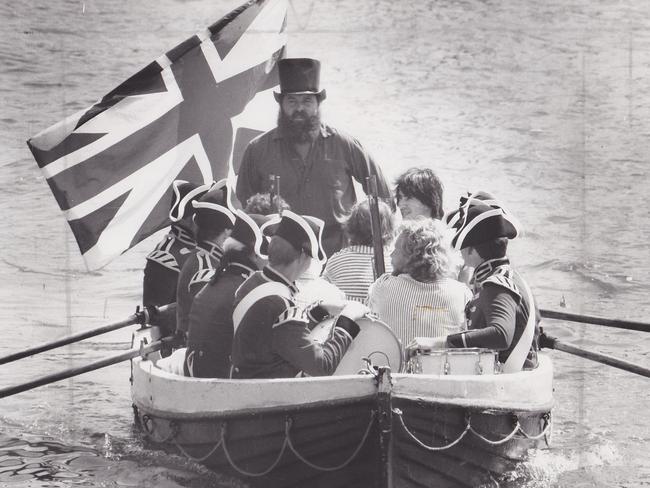Peta Credlin: No debate — January 26 the perfect day to celebrate
The annual outcry over Australia Day may have been muted by the bushfires this year, but the reasons why we should celebrate January 26 are as strong as ever, writes Peta Credlin.
Rendezview
Don't miss out on the headlines from Rendezview. Followed categories will be added to My News.
Have you noticed that missing this year has been the otherwise standard debate about whether there’s anything worth celebrating on Australia Day and changing any celebration to a less offensive date?
Perhaps the usual suspects on the left have been too busy arguing that climate change has caused the bushfire disaster.
Or perhaps the rallying of tens of thousands of volunteers to protect fire-threatened communities has temporarily stilled our national angst.
If a truce has been called in this particular battle, you can bet hostilities will be resumed next year as soon as there’s no local tragedy or triumph to distract the left from their habitual mission of running down Australia. The fact that nothing much is planned to mark the 250th anniversary of Captain Cook’s landing here shows how nervous we remain about anything that suggests there’s far more to celebrate than to be embarrassed about.

But let’s make the most of the lull in the culture wars to be proud of our country in all its glory and its challenges; the things we’ve done right and the mistakes we’ve made; her beauty and, as we’ve seen this summer, her terror; this “wide brown land for me!”
As a matter of historical fact, Australia Day marks the formal coming of British civilisation to Australia. The first Australia Day, January 26, 1788, when the flag was raised, a volley was fired, the King’s health was toasted, and a proclamation was read, denoting the birth of modern Australia; and marking Australia Day every year is really just celebrating our nation’s birthday like we celebrate the birthday of anyone who’s close to us.
MORE FROM PETA CREDLIN: Morrison should focus on fuel loads
The first Australia Day didn’t just formally inaugurate Arthur Phillip’s governorship of New South Wales.
It meant the coming of science, organisation, liberal pluralism and freedom under the law to a continent that had hitherto not know them – or known them only in the most rudimentary and unsystematic of forms. These are all priceless gifts.
Of course, as we know only too well, in ways that prick our consciences even at the distance of two centuries, the initial consequences of settlement were dire for the first Australians, despite the British government’s instruction to Phillip to live “in amity” with them.
Some were killed for helping themselves to domestic animals, the way they’d always done with native animals. Many died of the new diseases. A few were driven off, but most became fringe dwellers on the edges of the new settlements, often living wretchedly on the charity of the newcomers or being exploited for their labour.

Phillip might have taken Bennelong with him back to London and treated him as a kind of native dignitary; and white men might have been hanged as early as the 1830s for the murder of black men following the Myall Creek massacre; but it was generations before indigenous people were treated as citizens in their own land. Former ALP National President, and later Liberal candidate, Warren Mundine’s book about growing up in Grafton in the ’60s and ’70s is a good reminder of the occasional cruelty, as well as of the fundamental decency of the country we had become by then.
And even now, as we know only too well, Aboriginal people, on average, live shorter, poorer, harder lives than the rest of us. Not because they’re treated differently but because they live differently. Sometimes, that’s their choice but often enough that’s because they have no real choice.
MORE FROM PETA CREDLIN: What we need from a bushfire royal commission
Our challenge is not to disown the country we have become in an effort to atone for historical fact; it’s to try even harder to be the decent, generous, accepting country that we have always striven to be.
And to try even harder to ensure that every Aboriginal child goes to a school that’s as good as the ones our own children go to; and gets as much out of that schooling as our own children do. And has the same life chances as the rest of us do – not a five or six times greater chance of being the victim of partner homicide.
Today, there will almost inevitably be some indigenous activists who protest against what they see as theft of their country – just as there will be far more who join their neighbours to thank God for being Australian.
And there will almost inevitably be a few Green-run councils that ostentatiously refuse to run citizenship ceremonies – just as there will be far more councils of all political complexions that give new Australians the chance formally to join our team on such a special day.

Our past is not perfect but no past is. It was never reasonable to think that the great south land would never be disturbed and who would you want to arrive here on tallships if not Britain? And what other day might we have on which especially to acknowledge our country?
MORE FROM PETA CREDLIN: Wake up and smell the climate change socialism
You couldn’t steal Anzac Day from the soldiers, nor NAIDOC weeks from indigenous people, and the first of January – federation day – is too frequently marked by headaches from the night before.
And if January 26 supposedly leaves out aboriginal people, federation day is arguably worse because at that time half the population – women – couldn’t yet vote in any Commonwealth election.
Of course, the British settlement that Australia Day recalls only came about because James Cook had earlier reached the east coast of Australia and recommended it for future occupation. What is there not to celebrate about Cook’s first great voyage and the beginnings of modern Australia? It’s good that there’ll be an upgraded monument at Kurnell and a circumnavigation of Australia by the Endeavour replica, even though Cook himself never made such a voyage.
But April 29 this year, the 250th anniversary of Cook’s first landfall in Australia, should be marked with the solemnity that befits a great nation.
It’s an important national milestone where the Prime Minister should take a lead. Because we either celebrate our country and our achievement from one generation to the next; or we take our cue from the haters and weep over our wrongs and imagined illegitimacy.
There’s not much room for a bob each way on this one.
Originally published as Peta Credlin: No debate — January 26 the perfect day to celebrate



